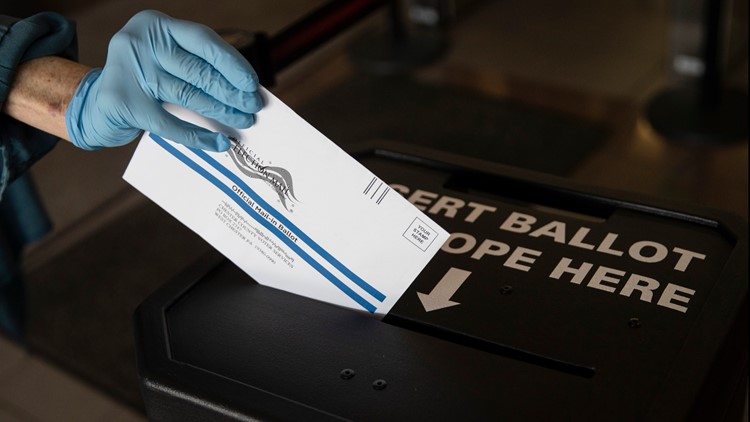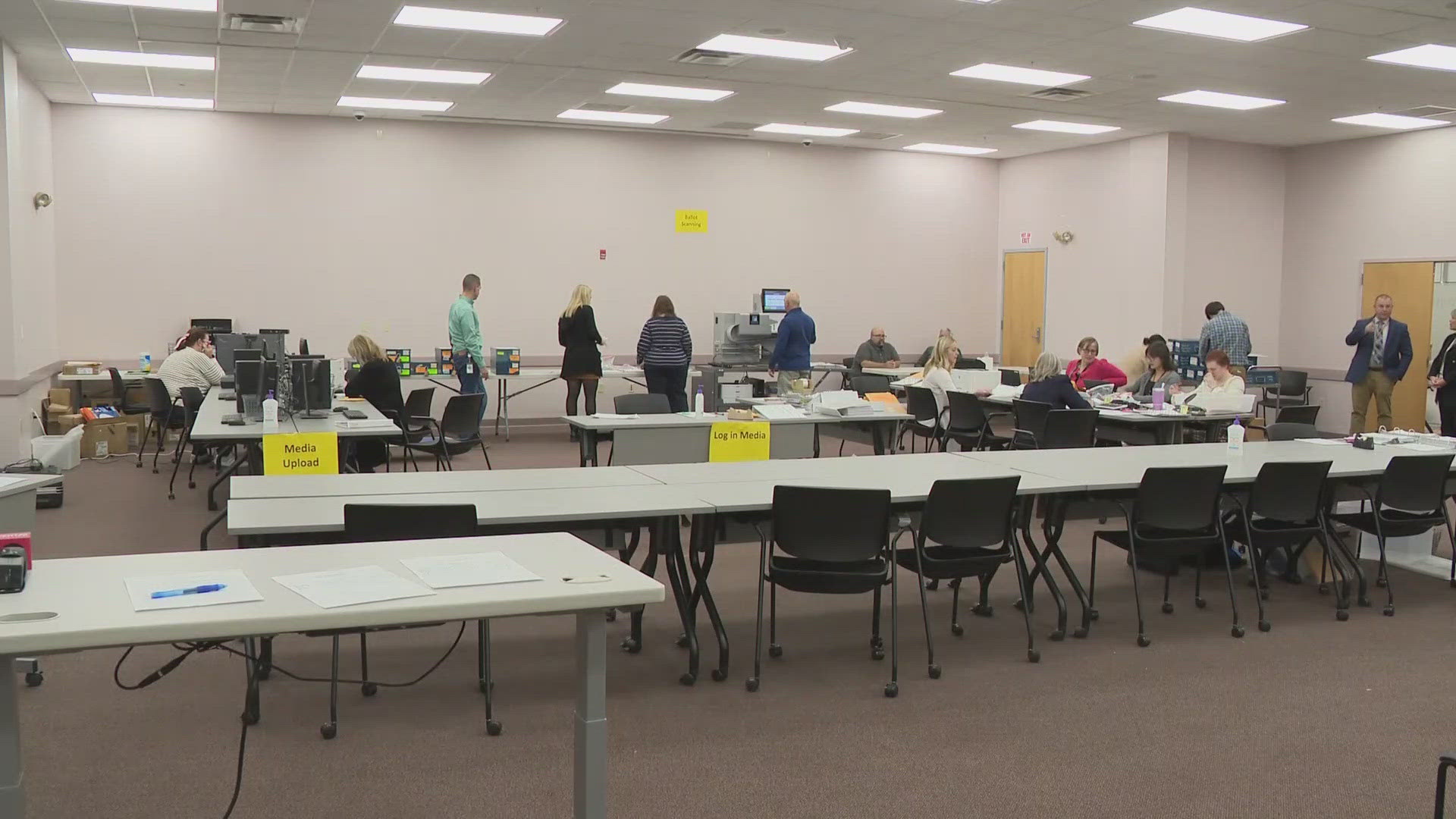AUGUSTA, Maine — The Secretary of State's Office is being sued over absentee voting access for people who are blind. Disability Rights Maine filed a federal lawsuit on Wednesday against the Maine Department of the Secretary of State as well as various clerks and registrars over voting rights they say are being violated. The lawsuit claims individuals with disabilities have been denied the right to vote privately and independently by absentee ballot in the November 3 election and future elections, in violation of federal and state laws.
The lawsuit asks the state to make accommodations so that people who are visually impaired can cast a vote from home without having to have someone else fill the ballot out for them.
The plaintiffs, listed as Lynn Merrill, Nicholas Giudice, Pauline Lamontagne, and Cheryl Peabody, brought on the claims under the Americans with Disabilities Act of 1990, the Rehabilitation Act of 1973, and the Maine Human Rights Act.
The lawsuit says due to the measures established in response to the coronavirus pandemic, including an order expanding the Absentee Voting program to encourage all Maine registered voters to vote safely from home via absentee ballot, individuals with disabilities are unable to vote privately and independently, which is their right.
“Individuals who are blind must choose between their health and their right to vote privately and independently because they are forced to go to a public voting place to privately and independently mark their ballot,” the lawsuit says.
Read the lawsuit here:
The lawsuit names:
- Matthew Dunlap, Secretary of State
- The Maine Department of the Secretary of State
- Tracy Roy, Augusta City Clerk and Registrar of Voters
- Lisa Goodwin, Bangor City Clerk and Registrar of Voters
- Katherine Jones, Portland City Clerk and Registrar of Voters
- Lisa Gilliam, Winslow Town Clerk and Registrar of Voters
- the Cities of Augusta, Bangor, Portland, and the Town of Winslow
Disability Rights Maine Attorney Kristen Aiello spoke with NEWS CENTER Maine Thursday about the lawsuit and said her clients had asked for reasonable accommodation and an accessible ballot in order to be able to vote in the presidential election and they were denied.
“So they really had no choice but to go forward and ask the court to order access for them,” Aiello said.
The Secretary of State’s Office said they’re not able to comment on pending litigation, but said Maine uses a universal voting system called ExpressVote, which allows voters to mark ballots independently at their polling place.
“It is accessible to any voter, including those who are blind, deaf, unable to use a pen or unable to use their hands,” Secretary of State Director of Communications Kristen Muszynski said. “Access to that system was one of the most important reasons in the determination to keep the polling places open for this recent election, rather than going all absentee as some people had advocated.”
When asked about the ExpressVote option, Aiello says that system is fine for people who go to the polls. But her clients want to follow the advice to vote absentee, and blind people cannot fill out and mail the ballot.
She says the state allows electronic voting for people who are overseas, such as members of the military, so it shouldn’t be a problem to let people with visual or other disabilities to vote privately and securely from home.
Aiello says there are two ways absentee voting for those with disabilities could be solved, based on what other states. The State could implement a PDF ballot, which means simply having a word processor like Adobe software, to create that ballot and make sure that the screen user can read it, and then use the system in place to send ballots through home computers.
Aiello says a second option is the companies that other states have invested in that use ballot marking software.
“My hope is that the Secretary of State and the municipalities will be able to come to a resolution here and make the ballots accessible for our clients, because they really are in a difficult spot,” Aiello said.
"We should all have the right to vote safely [...] I think the coronavirus has really sort of uncovered some real inequities."
The plaintiffs want to have the state and municipalities address this in time for the presidential election.



